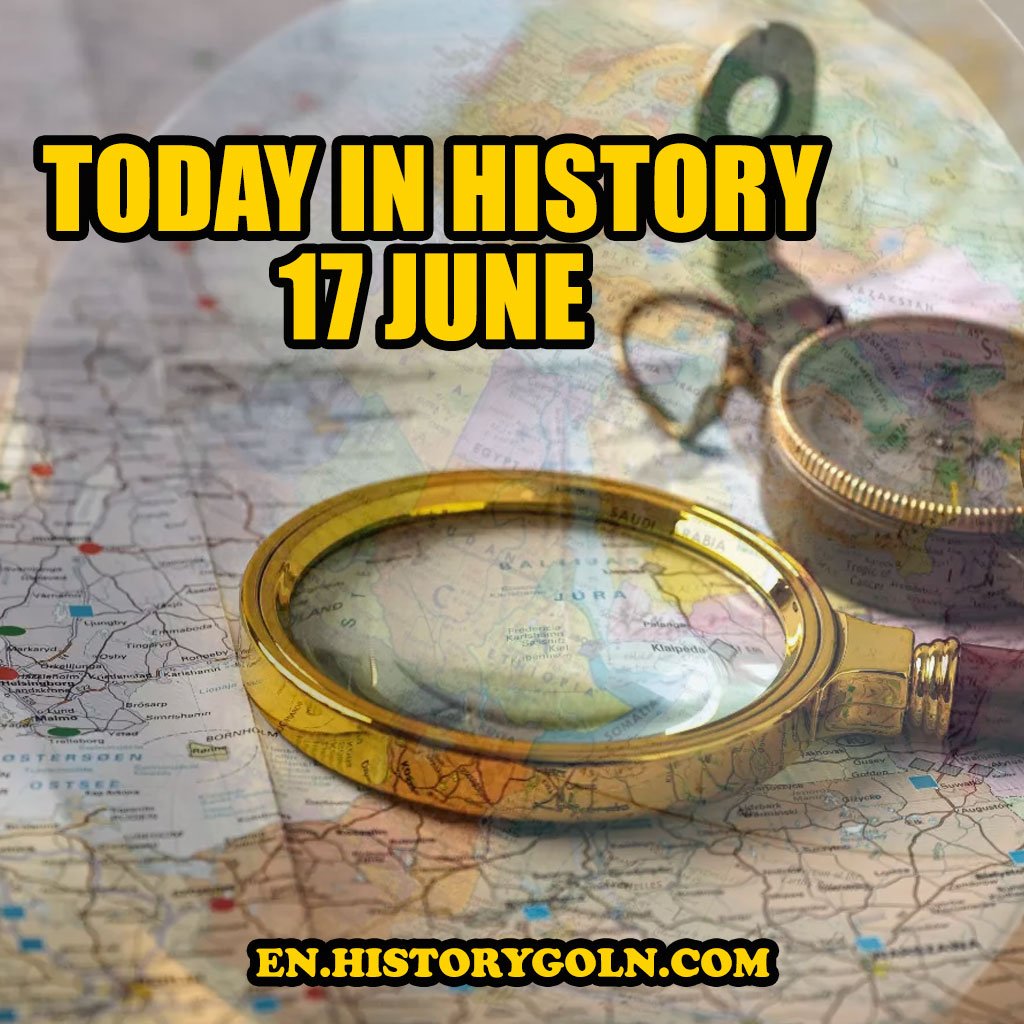History, as we know it, is shaped by countless moments that define the trajectory of civilizations, cultures, and human life. The 17th of June is no exception. This day has been the backdrop for a vast array of significant events, marking both triumphant achievements and sombre moments. From the annals of warfare to the breakthroughs in science and technology, June 17 offers a rich tapestry of history.
Today in History: 17 June

1462 – The Night Attack at Târgoviște: This was a skirmish between the forces of Vlad III, commonly known as Vlad the Impaler, and the forces of Mehmed II of the Ottoman Empire. Vlad’s brutal tactics and use of psychological warfare, including impaling thousands, kept Mehmed from conquering Wallachia.
1579 – Sir Francis Drake Claims California: The famed English sea captain, privateer, and navigator claimed a land he called Nova Albion (now known as California) for England. This marked a crucial point in the early stages of the English colonial empire in the New World.
1631 – Mumtaz Mahal’s Death: The demise of Mumtaz Mahal, the chief consort of the Mughal Emperor Shah Jahan, led to the construction of the Taj Mahal. This iconic monument, now one of the Seven Wonders of the World, stands as a testament to Shah Jahan’s love for Mumtaz.
1775 – The Battle of Bunker Hill: An early and pivotal battle during the American Revolutionary War, it demonstrated the potential of the American forces against the British. Though technically a British victory, it came with heavy casualties, signaling a long and difficult war ahead.
1843 – The Wairau Affray: This clash between British settlers and the indigenous Māori people in New Zealand marked the first significant conflict between the two groups. It was a prelude to the later New Zealand Wars that would dominate the 19th century in the region.
1885 – The Statue of Liberty Arrives: Arriving in New York Harbor, this gift from France would go on to become one of the most iconic symbols of the United States, representing freedom and democracy.
1922 – Herbert Chapman Becomes Manager: Herbert Chapman took over as manager of Huddersfield Town, and later Arsenal, introducing tactics and training techniques that would revolutionize English football.
1930 – The Smoot-Hawley Tariff: U.S. President Herbert Hoover signed the Smoot-Hawley Tariff Act into law, raising tariffs on imported goods. While intended to protect American jobs, many believe it exacerbated the Great Depression.
1939 – Last Public Guillotine Execution in France: Eugen Weidmann, a convicted murderer, became the last person to be publicly executed by guillotine in France. Due to the public’s reaction to the event, all subsequent executions were conducted privately.
1940 – The Sinking of RMS Lancastria: The British troopship was bombed and sunk during World War II, leading to Britain’s greatest maritime disaster in terms of lives lost, with an estimated 4,000 fatalities.
1950 – The First Kidney Transplant: A significant leap in the medical world, surgeons in Chicago performed the first kidney transplant, heralding a new era of organ transplantation.
1961 – Rudolf Nureyev Defects: One of the leading dancers of his generation, Russian ballet dancer Rudolf Nureyev defected from the Soviet Union to the West, causing an international sensation.
1963 – U.S. Supreme Court Rules on Abington School District v. Schempp: This landmark case ruled that it was unconstitutional for public schools to require Bible readings, underscoring the separation of church and state.
1972 – Watergate Break-in: Five White House operatives were arrested for breaking into the offices of the Democratic National Committee. This incident was the beginning of the Watergate scandal, which would eventually lead to President Richard Nixon’s resignation.
1991 – Apartheid Abolition: South Africa repealed the last of its apartheid laws, marking the end of a racially discriminatory system and paving the way for democratic elections.
2015 – Charleston Church Shooting: Tragedy struck the Emanuel African Methodist Episcopal Church in Charleston, South Carolina, when a mass shooting took place, resulting in nine deaths. This event intensified discussions on race relations, hate crimes, and gun control in the U.S.
In Conclusion:
June 17, like every day in history, showcases humanity’s intricate dance of progress, conflict, passion, and innovation. From the silent testament of love seen in the Taj Mahal to the transformative moments in medical science, the birth of symbols of freedom, and the echoes of warfare, this day mirrors the myriad facets of human civilization.
As we traverse through the annals of June 17, we see reflections of our shared human story—a tale of aspirations, challenges, breakthroughs, and transformations. Embracing the lessons and legacies of this day not only deepens our understanding of our past but also illuminates the paths for our future.
